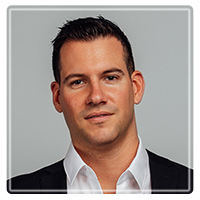
Eating Disorder Counsellor
Shannon Ritchie, MC, RCC
Registered Clinical Counsellor
404-235 1st Ave. , Kamloops, British Columbia V2C 3J4 | 250-253-5987
Our relationships with our bodies are greatly impacted in a society that places more value on a specific body shape and appearance. The social pressure to confirm to this ideal are at the root of eating disorders. However, we locate the problem within the individual. Through counselling we can examine the individual experience of your experience and the loved ones who are also affected. We will also explore the role of social context and social pressure. One of the goals of therapy will be to strengthen other narratives of the individual. For example, that the identify of an "eating disorder" is not the individual only identity.

Eating Disorder Counsellor
Joyce Clarke, M.Ed., RCC, CCC, CST
REGISTERED CLINICAL COUNSELLOR (BCACC #11188)
Smiling Spirit Counselling #503 235 First Avenue, Kamloops, British Columbia V2C 3J4 | 2503201905
It's important to know that eating distress is not about food or eating. It is about difficult problems, painful feelings, anxiety, trauma, etc. If you or someone you know, either FEMALE or MALE , has such unhealthy eating habits that you are concerned and feel that help is needed, please contact me. I will help. Don't wait until it is too late. Research shows that many eating disorders are a result of past or present problems or some trauma in a person's life. As a counsellor trained in trauma, I will help explore what may be causing the eating distress in order to help you, your friend or family member live healthier .

Eating Disorder Counselor
Kevin Fleming, Ph.D.
Coach/Change Agent/Consultant
At Home or Private Discreet Intensives
While most eating disorder issues are treated by cognitive behavioral methodologies or specialized outpatient/inpatient programs, Grey Matters International and the work of Kevin J. Fleming, PhD provide relief first and foremost for the brain of one suffering from an eating disorder----without giving them medication. We believe that the neural circuitries responsible for the compulsive behaviors with eating are not necessarily only a neurotransmitter issue but of overused neural networks that affect the harmonization, balance, and decisions of the whole brain. Contact kevin@kevinfleminphd.com or 877-606-6161 to learn more about this safe and effective alternative.

Eating Disorder Counsellor
Dana Goodman, B.A.B.Ed R.P.C. CCPCP, TITC-CT
registered professional counsellor
107 Coppertree Crt., Kamloops, British Columbia V2E 2N4 | (250) 318-0657
Working with clients at the various stages of change (precontemplation, contemplation, preparation and action) I seek to create a warm and safe environment that is sensitive to the clients individual needs. Working at the client's pace, we work collaboratively on understanding the root of restrictive eating and binging and then use various strategies, structures and supports that lead to health and wellness.

Eating Disorder Counselor
Steve Rose, PhD
Addiction Counsellor
Available for Online Therapy
I help clients overcome addictive relationships with food. Like all addictions, the behavior is the tip of the iceberg, used to cope with underlying thoughts and emotions. Through collaborative conversations, clients gain insight into underlying concerns, gaining coping skills to more effectively navigate these issues. I draw on Acceptance and Commitment Therapy (ACT) and Motivational Interviewing (MI), helping clients achieve a sense of freedom and control over their lives, leading to long-term change.

Eating Disorder Counselor
Olivia Mayer, MA, RCC
Registered Clinical Counsellor
Available for Online Therapy
Olivia has a passion for helping individuals struggling with eating disorders, providing support through a behavioral and trauma-informed approach. She helps clients uncover and address the underlying emotional and psychological factors contributing to their disorder while equipping them with practical strategies for recovery. Olivia’s compassionate and holistic approach focuses on creating a safe space for clients to explore their relationship with food and their bodies, empowering them to build healthier habits and a positive self-image. By integrating trauma-informed care with actionable tools, Olivia walks alongside her clients as they work toward healing, resilience, and lasting change.

Eating Disorder Counselor
Philip Starkman, MSW, RSW
Registered Psychotherapist
Available for Online Therapy
Eating disorders benefit from the same or similar approach used for all addictive behaviours. One of the main therapeutic approaches I use is Mindfulness Based Cognitive Therapy. The relationship to food can be quite complex involving societal or cultural pressures, self-image, past traumas, addictive non-nutritious junk food, media images, social media pressures, bullying. Shame and guilt need to be addressed along with peer pressures. The most common eating disorders are: Anorexia, Bulimia, Binge Eating, Pica, Rumination Disorder, Avoidance/Restrictive Food Intake Disorder (ARFID), Orthorexia, Purging Disorder etc. The benefits of therapy are enhanced self-image, health and well-being.

Eating Disorder Counselor
Heather Awad, MCP, RCC
Registered Clinical Counsellor
Available for Online Therapy
If you’ve struggled with disordered eating, you are all too familiar with compulsive behavior, obsessive thoughts and a disconnect from the body. You may also have a constant need for control while at the same time feeling a frightening and exhausting loss of all control. Please know that none of this is your choice, but rather is a state of stress and overwhelm while you do your best to feel better. I have nothing but compassion for the distress that comes with food-related challenges, and you have my commitment to help you care for the difficult underlying emotions involved. Together, we will create a safe space to move towards healing and a safe relationship with food and the body.
